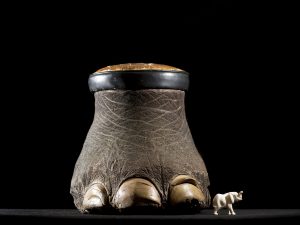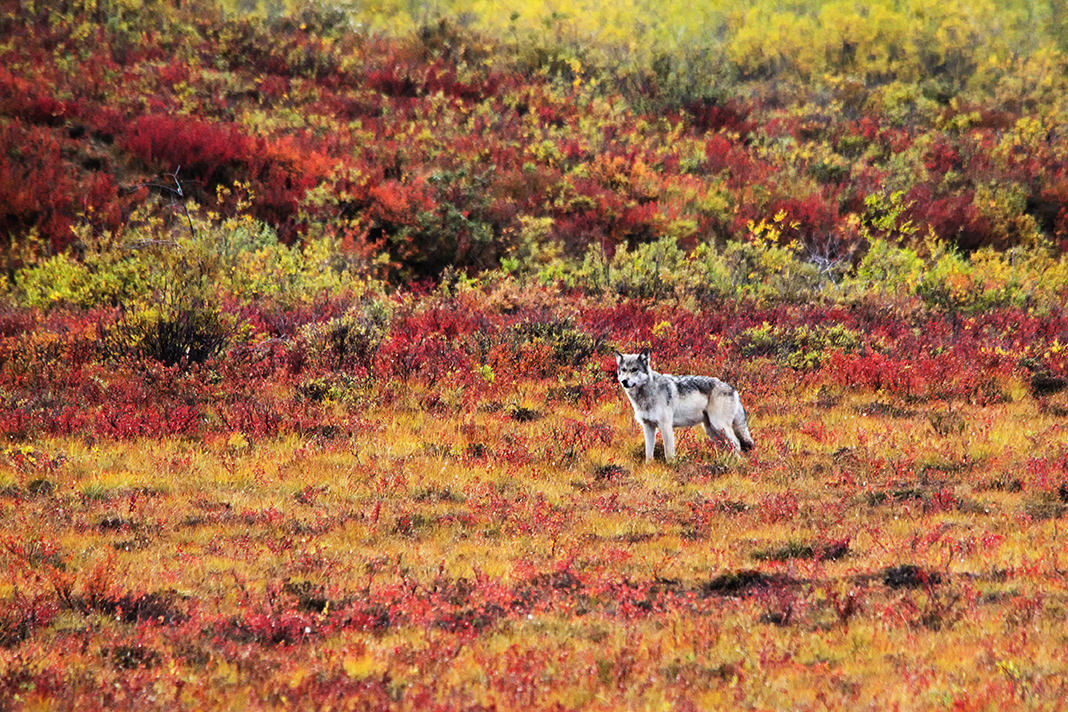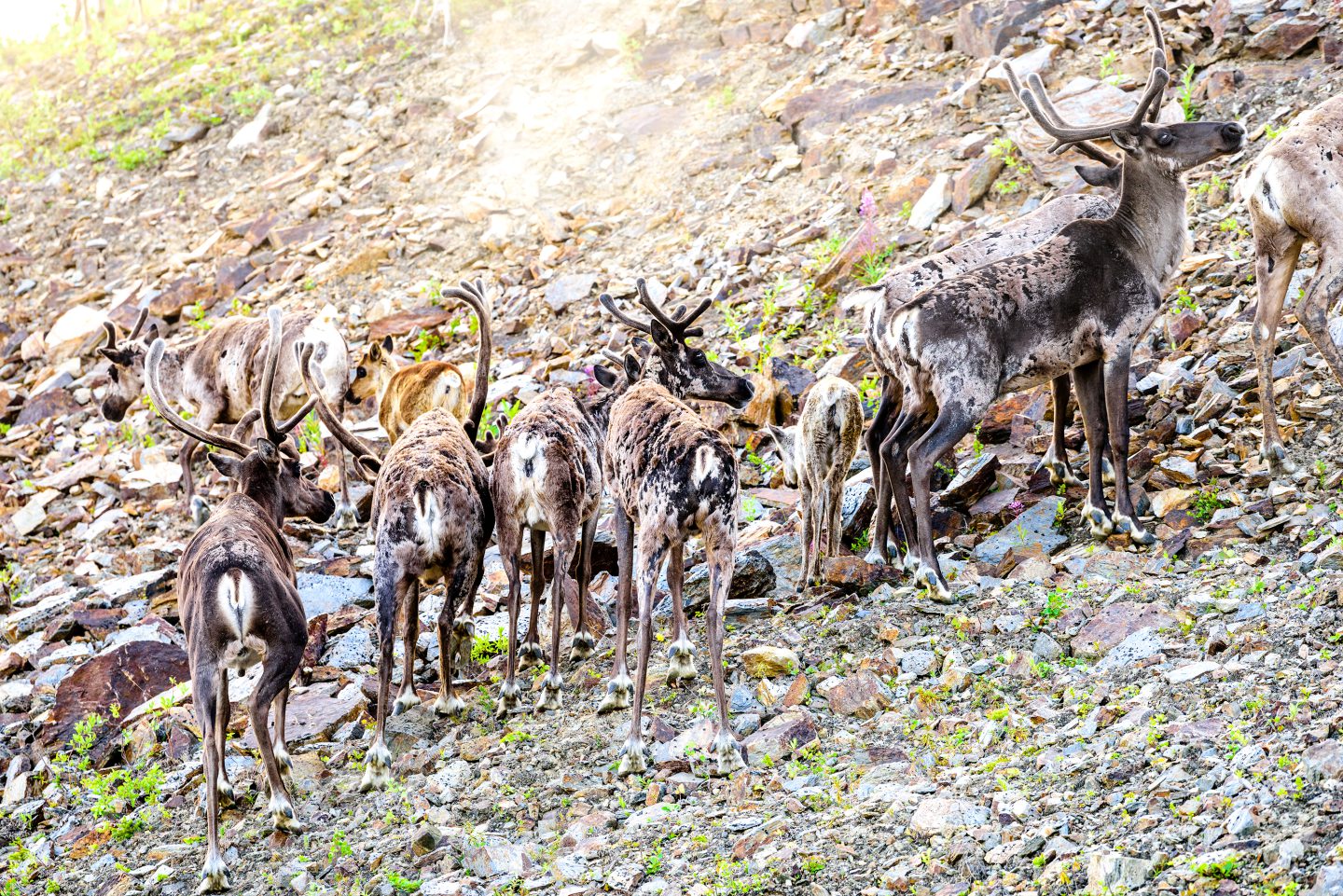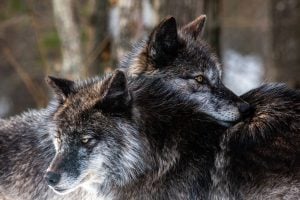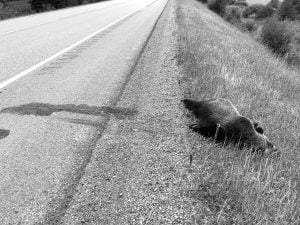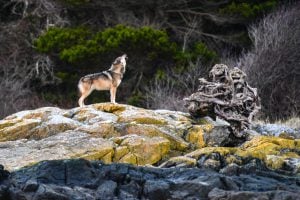Caribou make a semi-annual migration between their wintering grounds and calving grounds, but have been forced to change their well-worn paths to get around human activity. (Photo: Lesley Wiebe/Can Geo Photo Club)
According to White, more than 25 advanced mining projects intersect with caribou ranges in the Northwest Territories and into Nunavut. These mining projects encroach onto calving grounds for the caribou. Noise levels cause stress to the animals, and the loss of their habitat is resulting in increased predation of calves.
“They have to come to terms with the impact of the development that they are allowing in that area,” says White. “I don’t think you can have both.”
White says there’s no immediate solution to protect caribou without killing wolves, but that the current approach will result in a loss to both caribou and wolf species.
In British Columbia, the controversial practice of radio collaring and aerial culling of wolves has been underway since 2015. Pacific Wild, a wildlife protection non-profit, estimates more than 400 wolves have been killed in the last four years by this method and agree that a wolf cull is not a sustainable way to help caribou populations recover.
“Instead of dealing with the root of the problem, such as protecting caribou habitat, banning harmful industry — including mining, logging operations and some backcountry outdoor activities — in critical caribou habitat, the government is taking an easy way out,” says Rebeka Breder, a lawyer for Pacific Wild.
However, B.C. government officials say the five years of aerial culls have been successful, turning a 15 per cent per year decline of the caribou in that province into a 15 per cent per year increase. Government biologist Michael Bridger told CBC aerial culls “buy time.”
“The wolves do recover at a very high rate annually, anywhere from 60 to 80 per cent in a given year,” he said. “So it is a method — this aerial wolf reduction — that has to be sustained over time in order to achieve those results in the caribou population.”
Wolf culls in Canada have taken different forms since the 1900s, including poisoning, trapping and ground shooting. There are some data sets that show these culls have little impact on protecting the caribou population.
The one-year pilot in the Northwest Territories will lead to a five-year plan, which is set to be reviewed again in August 2020.
Related:
